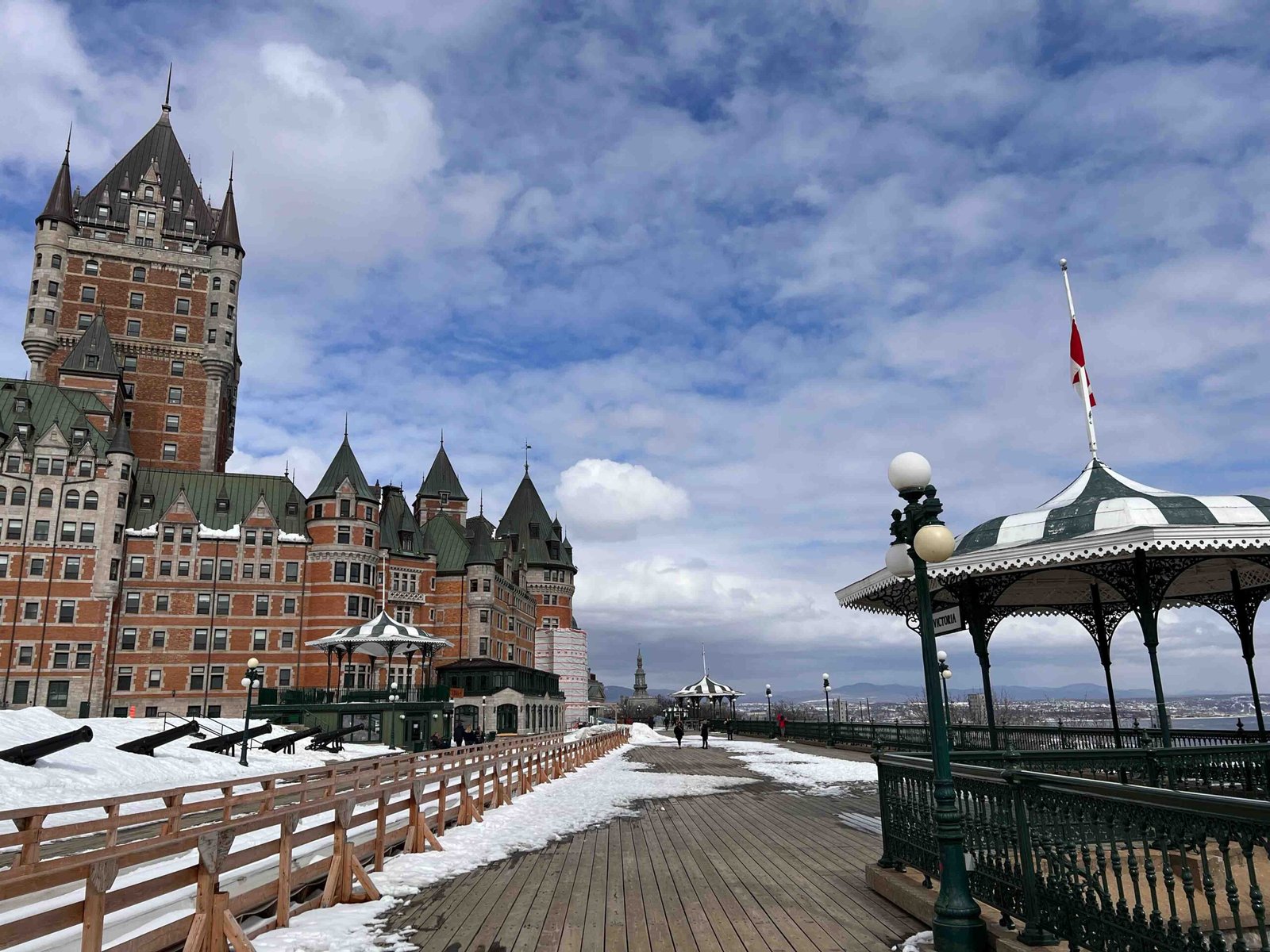Time zones have always been a fascinating subject, impacting the way we live, work and travel. In this article, we will explore Nova Scotia’s unique place in the world when it comes to time zones. Located in Canada’s Atlantic region, Nova Scotia is a province steeped in history and culture, and its time zone is unlike any other in North America. From the reasons behind its existence to its impact on businesses and society, we will delve into the conundrum of Nova Scotia’s time zone and offer tips for travellers navigating time differences. Join us on this journey as we uncover the mysteries of time zones and their significance in our lives.
A Brief Introduction to Time Zones
Time zones are a fascinating concept that affects the way we perceive time and communicate with people around the world. They were introduced in the late 19th century as a way to standardize time and make it easier for people to coordinate activities across long distances. The Earth is divided into 24 time zones, each representing a one-hour difference in time from its adjacent zone. This means that when it’s noon in London, it’s 7 am in New York and 4 am in Los Angeles. Time zones are based on the position of the sun relative to the Earth, with the prime meridian (0° longitude) serving as the reference point for Greenwich Mean Time (GMT). While time zones have become an integral part of our daily lives, they can also cause confusion and inconvenience when travelling or conducting business across borders. It’s important to keep in mind that not all countries adhere to the same time zone standards, and some even have unique time zones that deviate from the norm. Nova Scotia, for example, is one such place with its own distinct time zone that sets it apart from the rest of North America. Understanding time zones is crucial for anyone who wants to navigate our globalized world with ease.
Nova Scotia: A Province Steeped in History
Nova Scotia is a province steeped in history, with a rich cultural heritage that dates back centuries. The province’s name means “New Scotland,” and it is easy to see why. Scottish immigrants were among the first Europeans to settle in Nova Scotia, and their influence can still be felt today in the province’s music, dance, and language. The Acadian people, who are descended from French settlers, also played a significant role in shaping Nova Scotia’s history. In 1755, the British expelled thousands of Acadians from their homes in Nova Scotia, an event that is still remembered today as the Great Upheaval. The province’s connection to the sea is another important part of its history. For centuries, Nova Scotia was a hub for fishing and shipping, and many of its coastal towns and cities still retain their maritime character. Visitors to Nova Scotia can explore this rich history by visiting museums, historic sites, and cultural centres throughout the province. The Fortress of Louisbourg National Historic Site, for example, offers a glimpse into life in 18th-century Nova Scotia, while the Black Cultural Centre for Nova Scotia celebrates the contributions of Black Nova Scotians to the province’s history and culture. Overall, Nova Scotia’s history is a fascinating tapestry of cultures and traditions that continues to shape the province today.
The Unique Time Zone of Nova Scotia
Nova Scotia, the Canadian province located on the eastern coast of the country, is known for its stunning landscapes and rich history. However, what many people may not know is that Nova Scotia operates on a unique time zone that sets it apart from the rest of the Atlantic provinces. While Newfoundland and Labrador are half an hour ahead of Atlantic Time, Nova Scotia is an hour ahead, putting it in line with the Eastern Time Zone used in places like New York and Toronto. This means that when it is 12 pm in Halifax, it is only 11 am in St. John’s.
The decision to adopt this unique time zone was made in 1918, during World War I. At that time, there was a push to standardize time zones across Canada and the United States to facilitate communication and transportation between the two countries. The decision to put Nova Scotia an hour ahead of Atlantic Time was made to align with the major cities of the Eastern Time Zone, making it easier for businesses and government officials to conduct their affairs.
While this change may have made sense at the time, it has caused some confusion for travellers and residents alike. Visitors to Nova Scotia often forget about the time difference, leading to missed appointments or rushed travel plans. Additionally, some residents have argued that being on a different time zone than their neighbours in New Brunswick and Prince Edward Island creates unnecessary barriers for communication and collaboration.
Despite these challenges, Nova Scotia’s unique time zone remains an interesting quirk of this fascinating province. Whether you’re planning a visit or simply curious about the world of time zones, exploring Nova Scotia’s place in the world is sure to pique your curiosity.
Navigating Time Differences: Tips for Travellers
Travelling to different time zones can be exciting, but it can also be disorienting. To make the transition smoother, there are a few tips that travellers can follow. Firstly, adjusting sleep schedules before departure can help the body adapt more easily. This means going to bed earlier or later, depending on the direction of travel. Secondly, staying hydrated and avoiding alcohol and caffeine can help prevent jet lag symptoms. It’s also important to try to get some sunlight during the day, as exposure to natural light can help regulate the body’s internal clock. Thirdly, travellers should try to stick to local time as soon as possible upon arrival, even if it means skipping a meal or staying up later than usual. This will help the body adjust more quickly to the new time zone. Lastly, travellers should be patient with themselves and allow time for their bodies to adjust. It’s important not to overdo it with activities and to take breaks when needed. By following these tips, travellers can navigate time differences with greater ease and enjoy their trip without feeling too jet-lagged.
Why Does Nova Scotia Have a Different Time Zone?
Nova Scotia, a province in Canada, is one of the few places in the world that has a unique time zone. The province follows Atlantic Standard Time (AST), which is one hour ahead of Eastern Standard Time (EST) followed by neighbouring provinces and states. The question arises as to why Nova Scotia has a different time zone? The answer lies in the province’s geographical location. Nova Scotia is situated on the eastern coast of Canada, and its proximity to the Atlantic Ocean means that it is farther east than most of North America. In fact, it is only a few hundred miles west of the island of Newfoundland, which also follows AST.
The decision to follow AST was made by the Canadian government in 1883 when they standardized time zones across the country. At that time, Nova Scotia was already using AST, which was based on solar time at the 60th meridian west longitude. The meridian passed through Halifax, which was a major port and hub for trade and transportation. As a result, AST became the official time zone for Nova Scotia, and it has remained so ever since.
While some may argue that having a different time zone creates confusion for travellers and businesses operating across multiple time zones, it can also have its advantages. For example, Nova Scotia’s unique time zone means that it gets an extra hour of daylight during the summer months, making it an attractive destination for tourists seeking longer days. Additionally, businesses in Nova Scotia can take advantage of being one hour ahead of other provinces to conduct early morning meetings with clients in western Canada or the United States. Overall, while it may seem unusual for a province to have its own time zone, it makes perfect sense given Nova Scotia’s location and history.
The Impact of Time Zones on Business and Society
The impact of time zones on business and society cannot be overstated. In a globalized world where businesses operate across continents, time zones can make or break deals. The difference in time zones can lead to confusion, missed deadlines, and communication breakdowns. It is not uncommon for businesses to schedule meetings at odd hours to accommodate different time zones. This can cause employees to work outside their regular hours, leading to burnout and reduced productivity. Furthermore, the difference in time zones affects the transportation industry, particularly air travel. Airlines must adjust flight schedules to accommodate different time zones, leading to longer flight times and increased fuel consumption. Time zone differences also have an impact on international trade and commerce. Countries that share the same or similar time zones tend to have closer economic ties, while those with large time differences may face additional barriers to trade. The importance of time zones is not limited to business; it also has a significant impact on society. For instance, people living near time zone borders may experience confusion and inconvenience when travelling between different zones. Moreover, the switch to daylight saving time can disrupt sleep patterns and affect people’s health. In conclusion, time zones are an essential aspect of modern life that affects both business and society in many ways.
Final Thoughts: The Fascinating World of Time Zones
In conclusion, time zones are a fascinating aspect of our world that have a significant impact on our daily lives. From coordinating international business meetings to planning travel itineraries, understanding time differences is essential. Nova Scotia’s unique time zone adds an extra layer of complexity to this already intricate topic. However, it also adds to the province’s distinctiveness and charm. It’s intriguing to think about how time zones have evolved over the years and the role they play in shaping our society. Time zones have even become a political issue at times, as countries fight for control over their territory’s time zone designation. Despite the occasional controversy, it’s clear that time zones serve an important purpose in keeping our world running smoothly. As technology continues to advance, it will be interesting to see how time zone-related challenges are addressed. For now, travellers and businesses alike must continue to navigate the complexities of time differences and appreciate the unique quirks of places like Nova Scotia.
As we explored Nova Scotia’s unique place in the world, we learned about the fascinating world of time zones and their impact on business and society. Nova Scotia’s decision to have a different time zone has historical roots and continues to affect travellers and businesses alike. Navigating time differences can be challenging, but with the right tips and preparation, it can be a seamless experience. The conundrum of time zones is just one of many intricacies that make our world so interesting. It prompts us to consider how we measure time and how it affects our daily lives. As we continue to navigate through different time zones, let us reflect on the importance of time and how it shapes our experiences.
Time zone?
Alberta, British Columbia, Manitoba, New Brunswick, Newfoundland and Labrador, Nova Scotia, Ontario, Prince Edward Island, Quebec, Saskatchewan






Pingback: Alberta time zone – Things to do in Canada